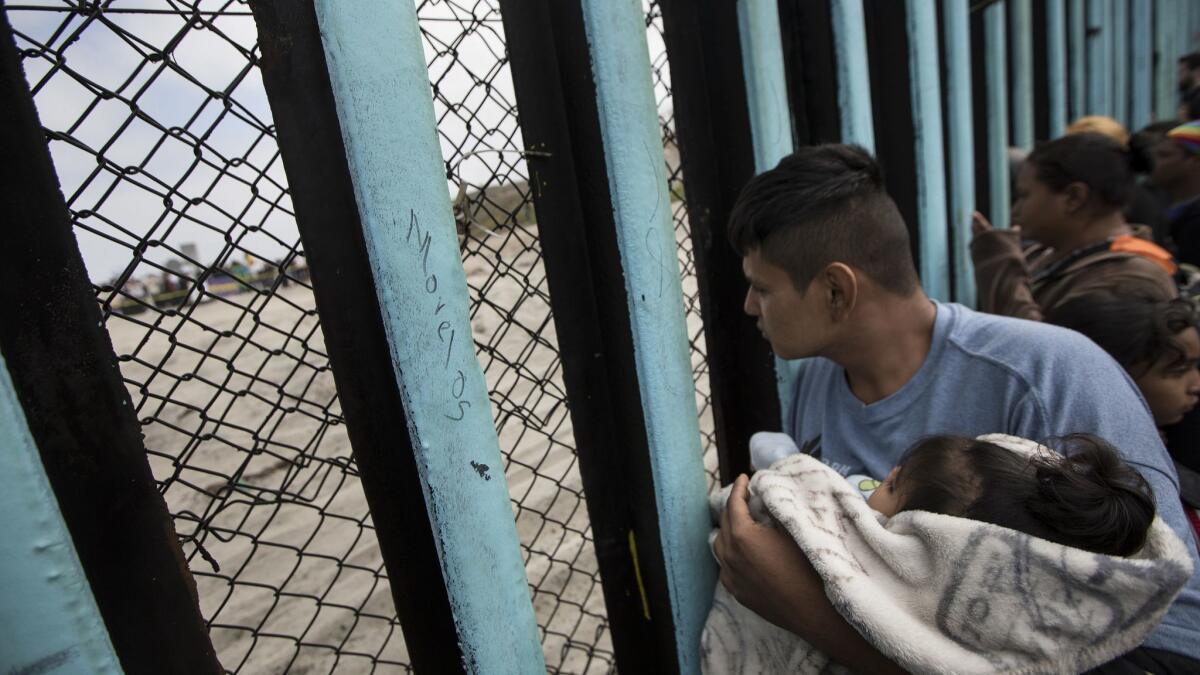Readers React: If you’re fleeing civil war or gang violence, U.S. asylum laws can’t help you. That needs to change

- Share via
To the editor: The problem with asylum cases lies not with the immigration court system, but with the laws themselves, which are out of touch with the plight of most refugees in the world today. (“Immigration courts are deeply split on who can claim asylum over violence in home countries,” May 6)
This is because our asylum laws are based on the Universal Declaration of Human Rights, which was adopted by the United Nations in 1948 in response to atrocities committed by Nazi Germany. As a result, our asylum laws require that the refugee’s fear be based on “race, religion, nationality, membership in a particular social group, or political opinion.”
Those of us who practice immigration law are acutely aware that people seeking asylum today are often fleeing civil war and gang violence, or otherwise do not qualify under this antiquated and restrictive definition.
While the U.S. offers Temporary Protected Status to individuals who are temporarily unable to safely return to their home country because of ongoing armed conflict, does this justify the fact that our immigration laws do not even provide asylum to those fleeing a civil war? It is time for us to revisit our asylum laws.
Curtis Pierce, Los Angeles
The writer is an immigration lawyer.
..
To the editor: So the asylum-seekers come here, saying they were threatened by a gang in Honduras and that Mexico is not safe for them either. Now the U.S. has to take them in and possibly give them legal status.
Does this mean that California should take in millions of citizens from Honduras, Mexico, Colombia and anywhere else with violent gangs?
I grew up in Belfast, Northern Ireland, and witnessed hundreds of instances of violence. My father was beaten with hammers in front of me when I was 10 for not paying protection money. I saw kids beaten senselessly after school for being Roman Catholic or Protestant, and yet I did not know of anyone who fled and sought asylum elsewhere.
Perhaps these asylum-seekers should just tell U.S. immigration authorities the truth: that they are really here to seek a better life, and the asylum-seeker route gets you to the front of the line.
Shane Brolly, Encino
Follow the Opinion section on Twitter @latimesopinion and Facebook
More to Read
A cure for the common opinion
Get thought-provoking perspectives with our weekly newsletter.
You may occasionally receive promotional content from the Los Angeles Times.










